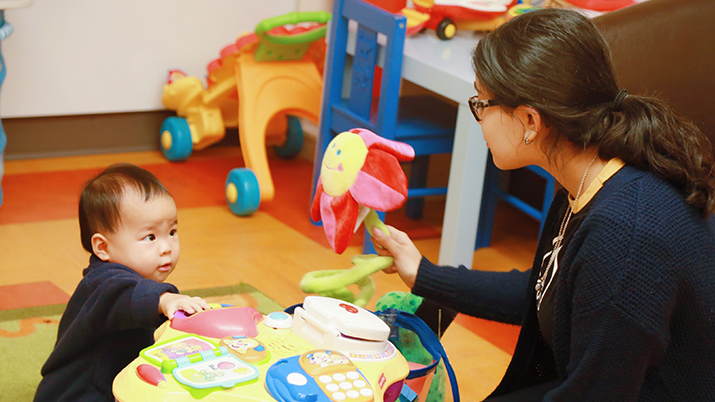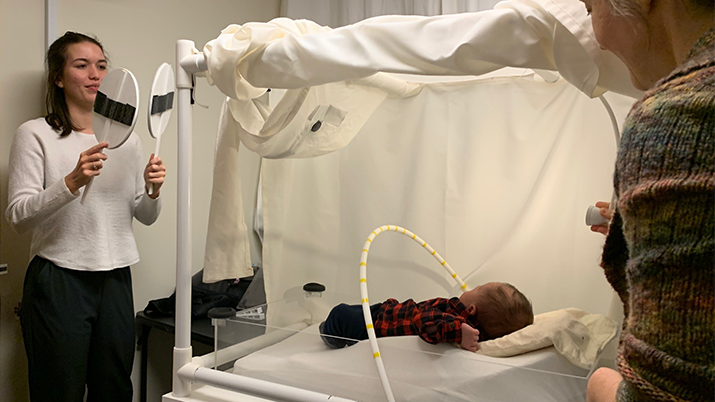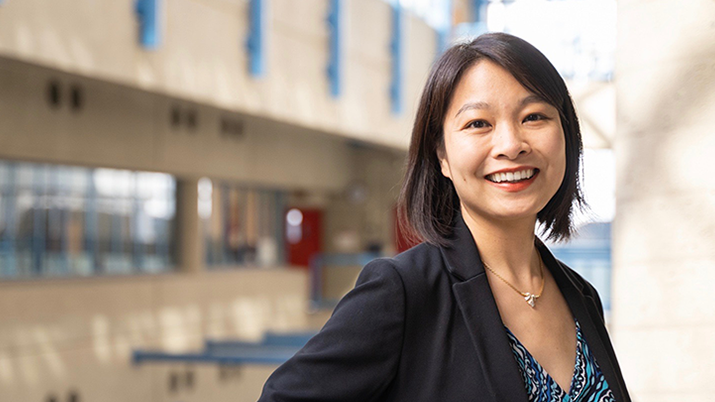

Photo credit: The Centre for Infant Cognition
To understand how we form friendships, distinguish what’s mean from what’s kind, and develop a sense of right and wrong, you need a place to start. At the Centre for Infant Cognition, that place is at the very start of life. With babies as participants, the Centre studies the development of moral and social behaviours.
Led by Dr. Kiley Hamlin, Canada Research Chair in Developmental Psychology, the researchers use puppet shows, videos, and interactive games to explore infants’ responses to social interactions and learn what they’re thinking about.
Now, the Centre is embarking on an ambitious new study to further understand babies’ social and moral development.
Raechel Drew, a PhD student working with Dr. Hamlin, discusses this research project, how to get involved, and what babies can teach us about morality.
What is this study about?
We are looking at babies’ social development from birth to age three. We want to know what babies understand about social interactions, when they develop a sense of “good” and “bad”, and how they learn to be prosocial individuals. Human society is based on our ability to successfully engage with others and to identify those who do not behave appropriately. We expect that babies already have a rudimentary understanding of many aspects of our social world from very early on in life. We’re interested to see how this early understanding gets deeper and more complex over time.
What can babies teach us about morality?
In past studies, we’ve shown babies puppet shows in which one character is helpful and another is unhelpful. When given the opportunity to interact with both characters, many babies choose the helpful one. However, it’s not entirely clear whether this preference is supported by a basic ability to discern “right” versus “wrong”, by early concern for others’ well-being, or whether it is driven primarily by self-interests. One way of addressing this is by exploring whether behaviours that may reflect babies’ abilities to judge appropriate social interactions correspond with other moral-like tendencies, such as prosocial behaviour and moral reasoning. We’re also interested in how these tendencies relate to other aspects of social development as children age.
What do you expect to find in this research?
We can’t know what we will find until we do the study, but we expect babies’ early judgements of others’ appropriate/inappropriate actions will be related to the development of empathy, expectations for fairness, prosociality, and moral reasoning as they grow up. We also expect that these sociomoral behaviours will be influenced by other aspects of social development and the features of the baby’s environment (for example, their relationships with their caregivers).
This project takes place over the course of three years. How will a baby’s upbringing and environment affect their morality?
Sociomoral development is influenced by a number of factors—those that are specific to the child, features of the child’s environment, and a child’s interactions with their environment. We’re trying to understand how environmental influences work in conjunction with a child’s own capabilities over time to produce some of the earliest social behaviours.
What are your plans after the study is completed?
After recruiting and testing 500 babies, we’re going to need some rest! This an incredibly complex field of research, so I hope that our project will inspire further questions and investigations into more specific facets of social and moral development. In due time, we hope that some of our findings will be useful to educators, policy-makers, and caregivers.
Tell us about the study and how can parents and their babies take part?
“Development in a Complex Social World” is a long-term project where your child will take part in a number of activities from shortly after birth until they are three years old. During this time, you and your baby will meet our fun team of researchers every few months. We’ll track babies’ social development using puppet shows, interactive games, and questionnaires. Participating families will be enrolled in regular draws for $250 gift certificates for local baby shops.
Parents can sign up on our website.


Photo credit: The Centre for Infant Cognition


